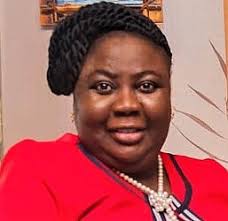Professor Bolanle Simeon-Fayomi, an expert in adult education and lifelong learning, has shed light on the multifaceted systemic obstacles that hinder Nigerian women’s access to education, employment, and broader societal opportunities. Her analysis, presented at a webinar hosted by the PUNCH Media Foundation, underscores the complex interplay of societal norms, patriarchal structures, and educational deficiencies that contribute to the persistent gender gap in Nigeria. Despite educational attainment, women often find themselves constrained by deeply ingrained societal expectations and a patriarchal system that limits their autonomy and potential. The prevailing focus on white-collar jobs as the sole measure of work further marginalizes women’s contributions in other sectors and reinforces the perception of their economic dependence, even when they are actively engaged in income-generating activities.
A central theme in Simeon-Fayomi’s analysis is the pervasive influence of patriarchal norms that dictate women’s roles primarily within the domestic sphere. Research findings she cited reveal that many men continue to hold outdated views on marriage, emphasizing a wife’s domestic duties and sexual availability as primary criteria for a successful union. This mindset perpetuates the idea that a woman’s value is tied to her ability to fulfill these roles, regardless of her educational achievements or professional aspirations. These societal pressures effectively negate the empowering effects of education, forcing women into traditional roles and limiting their ability to exercise their agency and pursue their personal and professional goals. The emphasis on domestic duties reinforces a cycle of dependence, preventing women from achieving economic independence and fully participating in society.
Simeon-Fayomi further dissects the different forms of education – formal, informal, and non-formal – highlighting the crucial role of informal education, encompassing soft skills and social skills, which she argues accounts for approximately 60% of the skills needed for success. This type of education is primarily acquired within the home environment, often reinforcing traditional gender roles. Formal education, in contrast, primarily focuses on theoretical knowledge, neglecting the practical application and soft skills crucial for navigating social and professional environments. This imbalance between theoretical and practical learning further disadvantages women who are often expected to prioritize domestic responsibilities over career development. The lack of emphasis on informal education in formal settings creates a significant gap in women’s skill sets, limiting their ability to compete effectively in the professional world.
The professor’s analysis also brings to light the stark disparities in access to education across different regions of Nigeria. In the northern part of the country, girls are often denied formal education altogether, forced into early marriages, and confined by traditional practices such as Purdah. This systemic denial of education perpetuates a cycle of disempowerment, limiting their life choices and opportunities for social and economic advancement. The irony of allowing these young girls, some as young as twelve, to vote while simultaneously denying them access to education underscores the deep-seated contradictions within the system. This practice highlights the instrumentalization of women’s participation in the political process without addressing the fundamental inequalities that undermine their agency and ability to make informed political choices.
Further exacerbating the challenges faced by Nigerian women is the unequal playing field they encounter in the workplace. Despite educational qualifications, women often struggle to compete with their male counterparts for career advancement opportunities. This disparity is rooted in deeply ingrained biases that favor men for leadership positions, often overlooking qualified women. The lack of adequate childcare support and flexible work schedules further disadvantages women, forcing them to juggle professional aspirations with the demands of motherhood and domestic responsibilities. This lack of support systems reinforces the perception that women are less committed to their careers, further hindering their professional growth and contributing to the gender pay gap.
To address these systemic barriers and empower women, Simeon-Fayomi proposes a multi-pronged approach. She advocates for the implementation of childcare support systems and flexible work schedules, enabling women to balance their professional and personal lives more effectively. Recognizing the growing importance of digital literacy in the modern world, she emphasizes the need to equip women with computer skills and online tools, opening up opportunities for online learning, entrepreneurship, and access to information. Furthermore, she criticizes the lack of solidarity among Nigerian women, highlighting the need for greater mutual support in professional and political spheres. This internalized misogyny, perpetuated by societal pressures, creates a divide that hinders women’s collective progress and reinforces patriarchal structures.
Crucially, Simeon-Fayomi emphasizes the vital role of mentorship in guiding younger generations of women. The establishment of strong mentorship networks can provide young women with role models, guidance, and support to navigate the challenges they face and channel their ambitions towards achieving their full potential. Finally, she stresses the importance of lifelong learning as a critical tool for women to adapt to the ever-evolving demands of the labor market and maintain their competitiveness in a rapidly changing world. Continuous learning empowers women with the skills and knowledge necessary to thrive in their chosen fields and ensures their continued relevance in the workforce. By adopting a comprehensive approach that addresses societal norms, educational gaps, and workplace inequalities, Simeon-Fayomi’s recommendations offer a pathway towards a more equitable and empowering future for Nigerian women.














